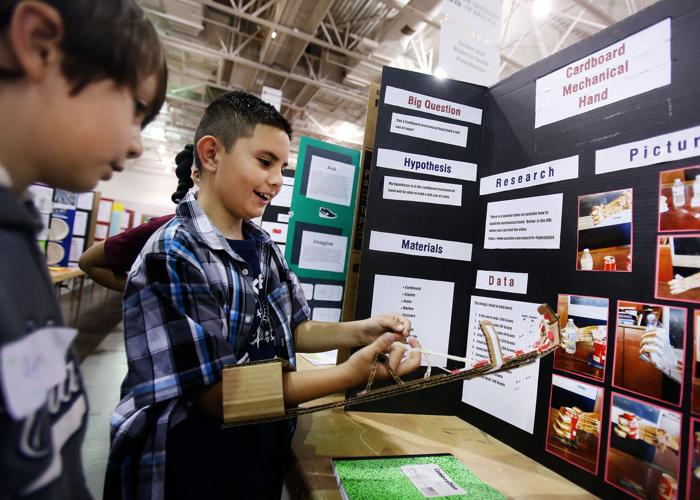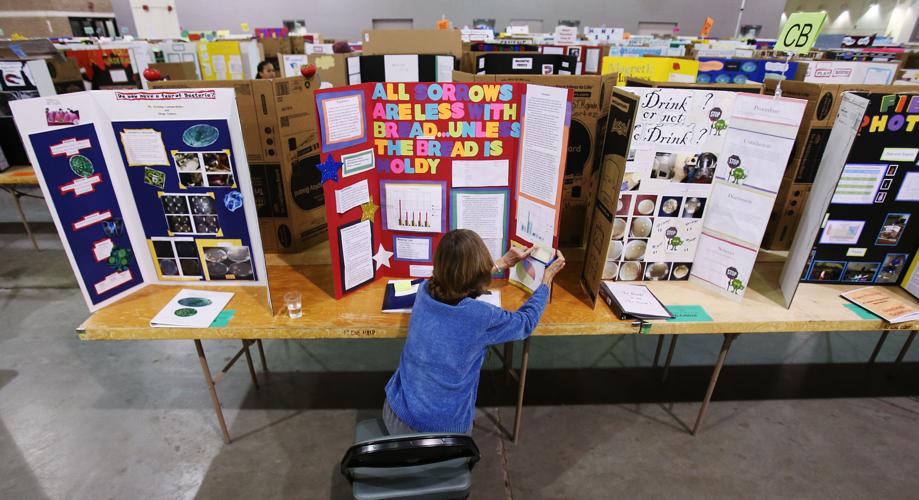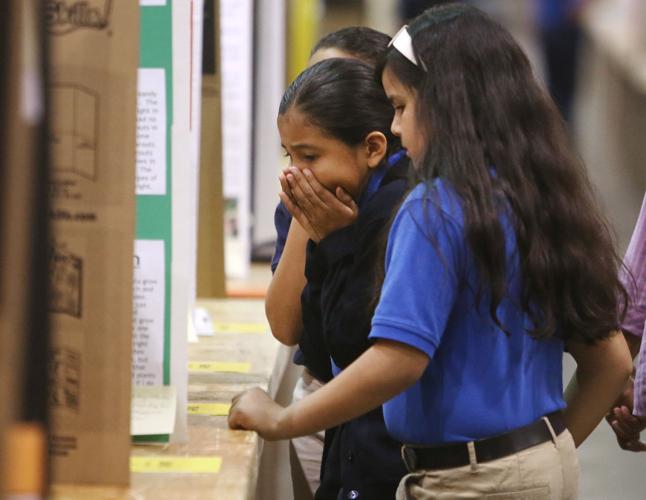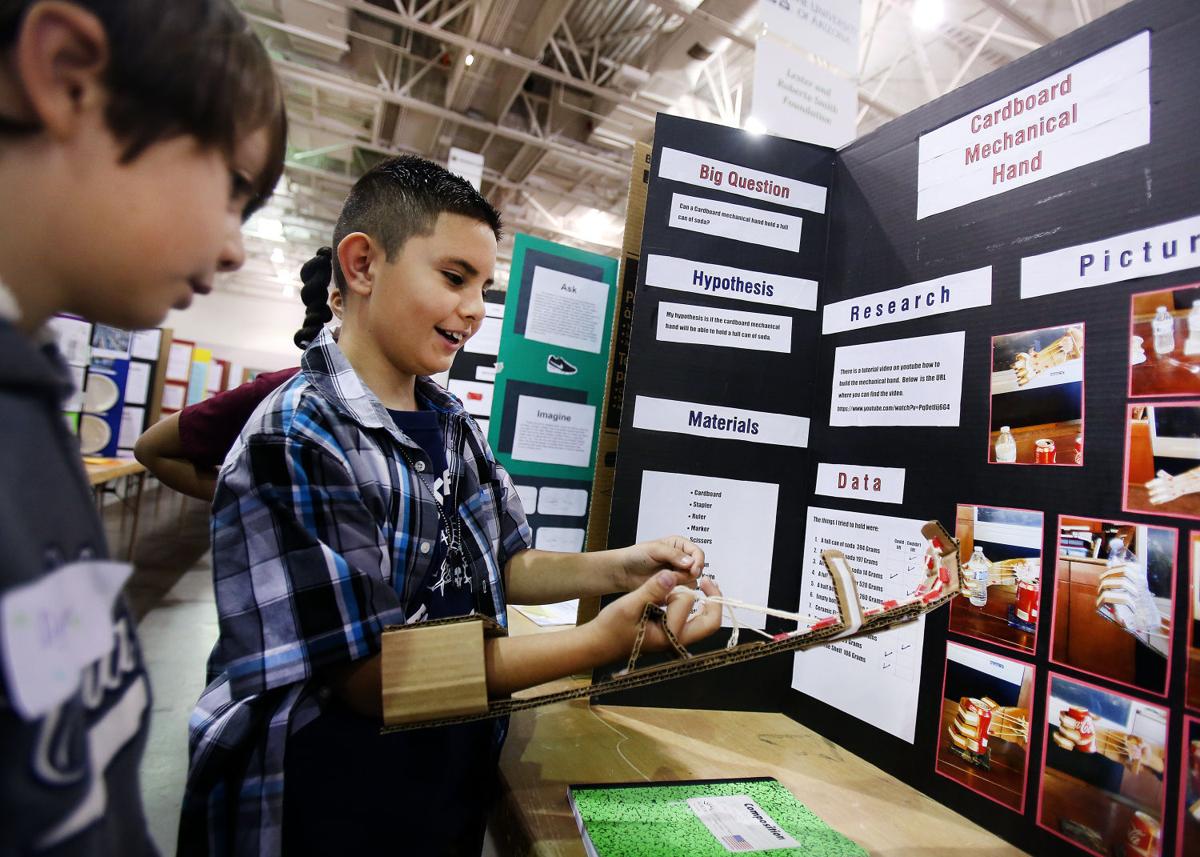It's almost science fair time... (Cue dramatic music)
The Southern Arizona science fair is April 11-14 and students — who are either required to complete a project or just WANT to — need to come up with a quality idea.
If you need some guided help, consider a workshop from SARSEF, the Southern Arizona Research, Science and Engineering Foundation, this month, Jan. 20, 1-4 p.m. or two workshops on Jan. 27, 9 a.m. to noon and 1-3 p.m. at SARSEF headquarters, 4574 E. Broadway. You'll learn all about creating a quality science and engineering project. Every child will leave with a project board, lab book and the beginning of a project.
Here are some tips directly from the experts at SARSEF.
What does a quality project look like?
No clay volcanoes or paper towel tests.
The idea should be something the student cares about, says Liz Baker, deputy director of SARSEF. "A not-quality project is one they go online to find an idea for or a '101 Science Fair Ideas' book because, not only has it been done, but most likely they don't care about it and when students do something they don't care about, they don't like the process and the judges can tell."
Quality ideas can be based off of pop culture. In fact, Baker said they see a lot of trends each year depending on what's cool. Last year it was flipping water bottles.
"That's kinda neat," Baker said. "But, lately on a whole, I think because of our outreach, we've been seeing a lot more projects that are solving a problem that is really personal to the student and that's awesome. It could be helping a pet or grandparent or their community. It's really neat to see that it's catching on more and more."
Why it's important
The importance of completing science projects goes beyond a competition or getting a good grade. It gives students skills they can apply no matter what career they go into.
"By doing a project they're learning to think critically and solve problems and those skills can really translate into absolutely anything," Baker said. "It's kinda funny because we're teaching them to view the world in a different way so when they run into a problem they think what's the best way for me to go about solving this, what are the variables...And it's a really big shift from the standardized testing paradigm where there's a right or wrong answer. This helps them to think more creatively that there can be many right answers and learning that it's OK to not find an answer to a question."

Ahtziry Moreno, center, covers her mouth as she reacts to a science fair project about herbivore poop.
If you're not sure how you can help your child with their science project, Baker shared a few tips.
1. Choose something they like to do already
Watch your child and notice what they are interested in. Are they looking up at the sky? Are they looking at ants on the ground? Are they watching nature documentaries? Are they taking things apart? Follow their lead in the direction of what they're doing already and have that be the focus of their project...Ants, football. It can be absolutely anything.
2. Notice what they are talking about
Are they talking about an issue they're seeing at their school or in their classroom? Is there something that's really frustrating them? Do they say they're concerned about somebody? That can be a great basis for a project as well because they can turn that frustration or concern into a project to help fix that problem or help the person that is being effected.
3. Let them fail
It's okay if you as a parent knows their idea isn't gonna work. That's part of the process. In terms of judging, that's great. As long as they went through the process and tried. If it fails spectacularly, it's OK. Maybe have them try again and if it doesn't work, that's OK as long as they keep thinking about it and improving, it's fabulous.
Bonus tip: Make it fun! If it's not feeling fun for either parent or student, don't be afraid to take a break and step away.

Nancy Woodling, a SARSEF volunteer and former TUSD teacher, leaves a personalized note on a project at last year’s Southern Arizona Research, Science and Engineering Foundation science fair at the Tucson Convention Center.
If you go
What: Roadmap to a Rockin' Project
When: Jan. 20, 1-4 p.m. for grades 4-8
Learn the ins and outs of creating a quality science fair project.
Jan. 27, 9 a.m. to noon for grades 4-8
Learn all about creating a quality science project.
Jan. 27, 1-3 p.m. for grades K-3
Learn all about creating a quality science fair project.
Where: SARSEF HQ, 4574 E. Broadway
Cost: $25 per child plus one adult
Register: Click here to save your spot







